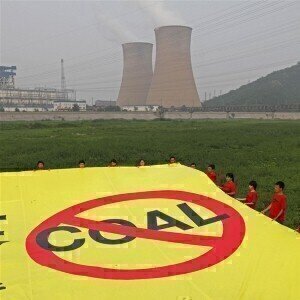Fuel for Thought
Push For Harsher Language on Fossil Fuels at COP 27
Nov 17 2022
What’s in a word? Well, at COP27, the subtleties of vocabulary have literally world-shaping ramifications.
As the Conference inches at an agonising pace towards a summit-wide resolution, there has been prolonged conflict over various phrases that are currently up for inclusion in the final document. Of particular importance is the possibility that this year’s agreement will go further than COP26’s somewhat conventional use of the term “phase down” in relation to the use of fossil fuels – or, at least, to the use of specific fossil fuels.
Last year, delegates to COP26 from the UK lobbied for greater strictness on agreements regarding coal – they wanted it to request that signatory nations “phase out” coal, not “phase down”. Ultimately, the request was declined. Now, delegates from India are spearheading calls for a similar change to the guidelines for all fossil fuels, supported by the United Kingdom, members of the European Union and the Alliance of Small Island States, a coalition of nations with unique exposure to rising sea-levels, mostly from the Carribean and the Pacific Ocean.
Of course, such demands are encountering friction. According to some commentators, India’s otherwise inexplicable interest in the linguistic change is strategically viable as a protection against any particular emphasis on coal, which is the nation’s central fuel-source. But understandably, oil- and gas-producing Gulf states, as well as major oil and gas consumers like China, don’t see things this way, preferring the wiggle-room that the softer language will afford them. For instance, Saudi Arabia’s energy minister, Prince Abdulaziz bin Salman, has publicly stated that the Kingdom would not support any agreement that called for the phasing down of oil. Many are keen to point out that such narrow conceptions of national interest are dangerously obstructive to necessarily global efforts to deal with climate change.
Nevertheless, the demand for tougher phrasing can count on support from blocs most committed to progressive action like the Beyond Oil and Gas Alliance (BOGA), a group of mostly consumer nations dedicated to implementing international bans on new oil and gas drilling projects. During the Conference, the Alliance added Portugal to its membership, which already included Denmark, France, Ireland, Sweden, Washington State and the Canadian province of Quebec.
The Alliance have been making big strides in recent years. Recently, representatives revealed that the Alliance will be providing advice to developing countries on moving away from fossil fuels, allocation USD10 million in funding to enable this transition. The efforts of the group have been tacitly endorsed by the International Energy Agency which has been clear that no new oil and gas fields can be developed if we are to limit global warming to 1.5°C.
The outcome of the contest will be revealed in the next few days as COP27 produces an agreement.
Digital Edition
PIN 25.3 June/July
June 2024
Analytical Instrumentation - Recent Advances In Various Bench Scale Accelerated Oxidative Testing Methods For Fuels - Petrochemical Industry: Anton Paar Solutions Streamline Processes, Reduce H...
View all digital editions
Events
Jul 30 2024 Jakarta, Indonesia
Jul 30 2024 Jakarta, Indonesia
China Energy Summit & Exhibition
Jul 31 2024 Beijing, China
Jul 31 2024 Chengdu, China
Aug 05 2024 Moon Township, PA, USA



















